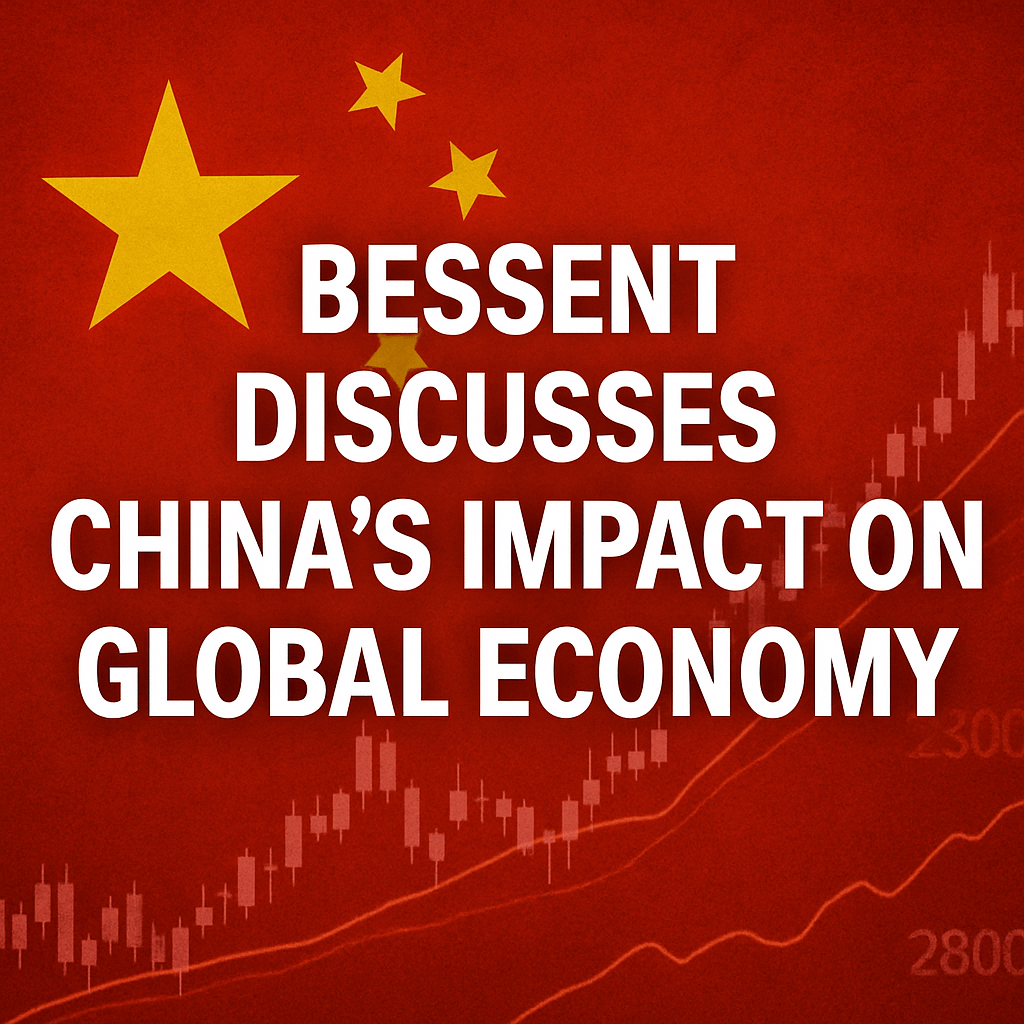Bessent Discusses China’s Impact on Global Economy

Treasury Secretary Scott Bessent emphasized that China faces a significant decision regarding its future as a dependable global partner. During his address at the American Swiss Foundation Leadership Summit held in Zurich, Bessent reiterated that a shift towards a consumption-driven economy could mitigate ongoing global economic imbalances.
“They either want to be a reliable partner to the rest of the world, or they don’t,” Bessent said via video link.
The Need for Economic Reformation in China
Bessent pointed out that China is currently experiencing an extensive real estate overbuild. While he stopped short of labeling the situation as a ‘crisis’, he indicated that failure to address the current economic model could have global repercussions. Bessent stressed that the remedy for such imbalances is not to export deflation or surplus inventory but to adopt fiscal stimulus measures and refocus on fostering a consumer economy.
As China grapples with its economic policy, it is vying to balance its manufacturing sector with increased domestic consumption. A pivot towards consumerism would not only stabilize the Chinese economy but would also ease global supply chain disruptions by reducing the pressures brought by China’s export-driven growth. This suggests an important shift from the country’s traditional focus, which has heavily favored manufacturing and exports over local consumption.
The US-China Tariff Conflict
The backdrop to Bessent’s comments is the ongoing tension between the United States and China, the world’s two largest economies. Both nations recently accused each other of violating terms set in Geneva, where they agreed to pause tit-for-tat tariffs until mid-August to allow negotiations to unfold. Bessent highlighted that this friction stems from differing economic ambitions and strategies concerning manufacturing.
President Donald Trump has been vocal about his desire to fortify the U.S. manufacturing sector. He stated that revitalizing domestic manufacturing is central to his administration’s economic agenda, which includes tax cuts, trade rebalance efforts, and deregulation. The U.S. is keen on attracting both domestic and international investments, an aim that aligns with enhancing precision manufacturing.
US-Switzerland Trade Relations
Turning to Europe, Bessent also expressed optimism regarding U.S. collaboration with Switzerland on artificial intelligence (AI) and financial services. With a focus on streamlining international financial regulations and capital requirements, both nations are looking to strengthen economic ties.
Switzerland is currently negotiating a vital bilateral trade deal with the U.S. aimed at mitigating the impact of heightened tariffs on Swiss goods, which could rise to as high as 31% if negotiations do not yield results by the July 9 deadline. Helene Budliger, Switzerland’s top trade official, reassured the public that U.S. authorities have indicated a willingness to extend the current tariff levels, provided that both sides engage earnestly in negotiations.
Implications for Global Trade Dynamics
As global production surpluses, especially in steel, continue to affect numerous nations, including Switzerland and the U.S., trade relations are increasingly crucial. Bessent’s remarks suggest a broader context of geopolitical tensions impacting economic policies worldwide, thus underscoring the need for cooperative dialogue.
The creation of a trade framework similar to the U.K. deal could present opportunities for both the U.S. and Switzerland to address pain points and exploit collaborative synergies. Budliger mentioned that there are “relatively concrete ideas” being discussed, which could pave the way for a more fortified economic partnership while alleviating tariff pressures.
Future Outlook
Looking forward, Bessent’s insights suggest that both China and the U.S. must navigate a complex landscape where domestic economic policies intersect with international trade norms. The choices made by China regarding its economic structure will play a critical role in determining its long-term viability as a stable partner in global economic affairs.
In conclusion, the cross-currents of geopolitical issues and economic policy decisions significantly shape the global economic landscape, with implications reaching far beyond national borders.